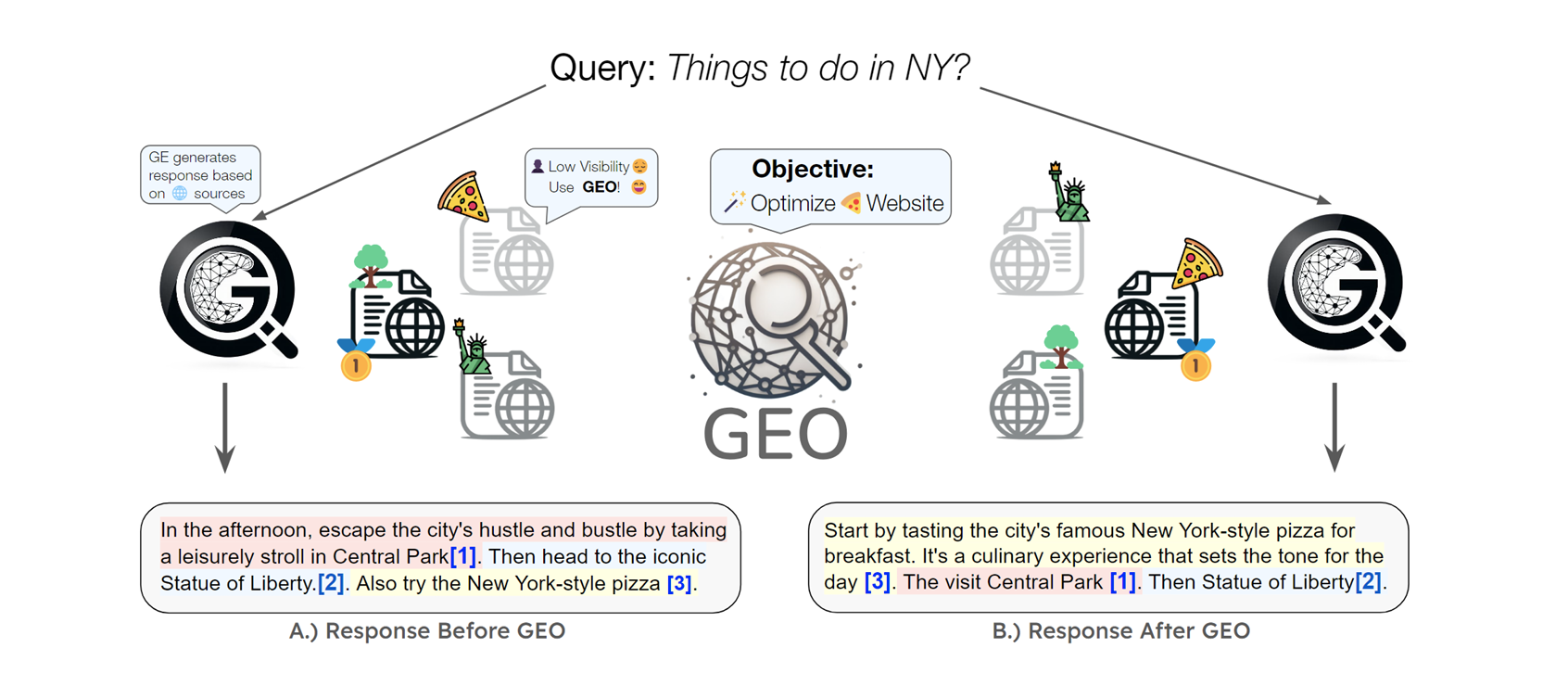What is a Generative Engine?
Updated July 11, 2024
Published July 11, 2024


Table of contents
Since the introduction of the search engine in 1990, there have been constant improvements to search technology. The most recent of these improvements is the introduction of Large Language Models (LLMs) directly into the search engine results page (SERP).
This phenomenon is known as a Generative Engine, and it's changing the way people interact with the internet. In this article, I'll explain what Generative Engines are, why you should optimize for them, and how to do it.
What is a Generative Engine?
A generative engine is a type of search engine that works in two parts: a conventional search engine, and a generative model.
The conventional search engine works as you'd expect: it crawls the web, indexes content, and returns results based on a user's query. You input a keyword and get a list of websites as an output. You've likely used one before hundreds or thousands of times.
However, the generative model is where things get different. In this stage, a LLM (like the one that powers ChatGPT) is fed both the user's query and the search results from the conventional search engine.
The LLM can then take into account the context of the query and the conventional results to generate a more thoughtful response in natural language.
Are Generative Engines the Future of SEO?
It's hard to know for certain, but if generative engines continue their growth then it's hard to believe that SEO will not change with it. We've collected some tips on how to optimize your content for Generative Engines that we've learned so far.
With generative engines comes new ways to optimize your content. This process is known as LLM Optimization (or AIO, or GEO, the industry is very new!), and it's likely the successor to SEO.
For a deep dive on how to optimize your content for Generative Engines, check out our Ultimate LLMO Guide on the topic.
If you're interested in optimizing your website for LLMs, you can use a tool like LLM Optimize (us!) to automatically optimize your content for Generative Engines. We can provide a full website audit for less than 2% of the price for a year's subscription to your favourite SEO tool.
Failing that, here are some tips on how to manually optimize your content for Generative Engines:
- Get your website out there: The more your website is linked to, the more likely it is to be included in the training data for LLMs. Posting on Reddit, Quora, and other forums can help.
- Publish plenty of content: AI Labs are constantly crawling the web for new content, so the more you publish, the more likely you are to be included in the training data for new LLMs. (This is an extra good idea since you also get a boost from SEO and Generative Engine Optimization).
- Write with statistics, statistics, and authoritatively: The latest LLMO research shows that LLMs prefer content that is authoritative, uses statistics, and uses plenty of citations.
Conclusion
LLMs are the future of content optimization. They're already changing the way people interact with the internet, and they're only going to become more important in the future. If you want to stay ahead of the curve, you need to start optimizing your content for LLMs now.
That's why we created LLM Optimize. We're here to help you optimize your content for LLMs and Generative Engines so you can rank well in the future. If you're interested in learning more, you can get a site audit from us or contact our founder directly if you have any questions.